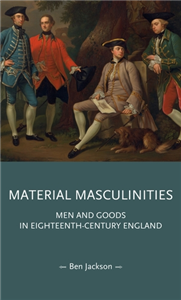Description
More Information
Rights Information
Albania, Algeria, Angola, Argentina, Armenia, Australia, Austria, Bahrain, Belgium, Belize, Benin, Bolivia, Bosnia and Herzegovina, Botswana, Brazil, Bulgaria, Burkina Faso, Burundi, Cameroon, Canada, Cape Verde, Central African Republic, Chad, Chile, China, Colombia, Comoros, Congo [DRC], Congo, Republic of the, Costa Rica, Ivory Coast, Croatia, Czech Republic, Denmark, Djibouti, Ecuador, Egypt, El Salvador, Equatorial Guinea, Eritrea, Estonia, Ethiopia, Faroe Islands, Finland, France, French Guiana, Gabon, Gambia, Georgia, Germany, Ghana, Greece, Guatemala, Guinea, Guinea-Bissau, Guyana, Honduras, Hongkong, Hungary, Iceland, India, Indonesia, Iran, Iraq, Ireland, Israel, Italy, Japan, Jordan, Kazakhstan, Kenya, Kuwait, Latvia, Lebanon, Lesotho, Liberia, Libya, Lithuania, Luxembourg, Macau, China, Macedonia [FYROM], Madagascar, Malawi, Malaysia, Mali, Malta, Mauritania, Mauritius, Mayotte, Mexico, Mongolia, Montenegro, Morocco, Mozambique, Namibia, Netherlands, New Zealand, Nicaragua, Niger, Nigeria, Norway, Oman, Pakistan, Panama, Paraguay, Peru, Philippines, Poland, Portugal, Puerto Rico, Qatar, Reunion, Romania, Russia, Rwanda, Saint Helena, Sao Tome and Principe, Saudi Arabia, Senegal, Serbia, Seychelles, Sierra Leone, Singapore, Slovakia, Slovenia, Somalia, South Africa, South Korea, Spain, Sri Lanka, Sudan, Suriname, Swaziland, Sweden, Switzerland, Syria, Taiwan, Tanzania, Thailand, Timor-Leste, Togo, Tokelau, Tunisia, Turkey, Uganda, Ukraine, United Arab Emirates, United Kingdom, United States, Uruguay, Venezuela, Vietnam, Western Sahara, Yemen, Zambia, Zimbabwe, South Sudan, Cyprus, Palestine, Bangladesh, Cambodia, Liechtenstein, Azerbaijan, Jamaica, Kyrgyzstan, Dominican Republic, Myanmar, Monaco
Endorsements
Material Masculinities is the first book-length study dedicated eighteenth-century men's material culture and consumer behaviour. Scholarship has unquestionably that shown men were active participants in a consumer society buying for their persons, their families, and their communities, but how and, importantly, why men engaged so much in the 'consumer revolution' is less clear. The wider significance and repercussions from this consumer and material engagement remain under-explored. This timely monograph examines the complexities of men's material lives as they rose up the social hierarchy, as they matured from boys to men, as they married and established households, as they socialised in town and on the hunting field. The book studies five 'material masculinities' (boyhood, householder, mobile man, discerning consumer, and gentleman sportsman) to highlight the materiality of masculine identity formation and experience as well as the materiality of gendered power. Material Masculinities' examination of these varied masculinities within a rich variety of historical sources, reveals men came to rely on goods to construct and perform a variety of masculine identities and in doing so their material choices, desires, practices, and skills shaped the material and consumer culture of eighteenth-century English. Goods, it argues, helped men know themselves in a period of significant social, cultural, economic, and political change - change that was underpinned by men's active participation in the commercialisation of British society in this pivotal period of English history.
Reviews
Material Masculinities is the first book-length study dedicated eighteenth-century men's material culture and consumer behaviour. Scholarship has unquestionably that shown men were active participants in a consumer society buying for their persons, their families, and their communities, but how and, importantly, why men engaged so much in the 'consumer revolution' is less clear. The wider significance and repercussions from this consumer and material engagement remain under-explored. This timely monograph examines the complexities of men's material lives as they rose up the social hierarchy, as they matured from boys to men, as they married and established households, as they socialised in town and on the hunting field. The book studies five 'material masculinities' (boyhood, householder, mobile man, discerning consumer, and gentleman sportsman) to highlight the materiality of masculine identity formation and experience as well as the materiality of gendered power. Material Masculinities' examination of these varied masculinities within a rich variety of historical sources, reveals men came to rely on goods to construct and perform a variety of masculine identities and in doing so their material choices, desires, practices, and skills shaped the material and consumer culture of eighteenth-century English. Goods, it argues, helped men know themselves in a period of significant social, cultural, economic, and political change - change that was underpinned by men's active participation in the commercialisation of British society in this pivotal period of English history.
Author Biography
Ben Jackson is a British Academy Research Fellow at the University of Manchester
Manchester University Press
Manchester University Press is a leading UK publisher known for excellent research in the humanities and social sciences.
View all titlesBibliographic Information
- Publisher Manchester University Press
- Publication Date April 2025
- Orginal LanguageEnglish
- ISBN/Identifier 9781526180605 / 152618060X
- Publication Country or regionUnited Kingdom
- FormatPrint PDF
- Pages304
- ReadershipGeneral/trade; College/higher education; Professional and scholarly
- Publish StatusPublished
- Dimensions216 X 138 mm
- Biblio NotesDerived from Proprietary 6245
- SeriesGender in History
- Reference Code16662
Manchester University Press has chosen to review this offer before it proceeds.
You will receive an email update that will bring you back to complete the process.
You can also check the status in the My Offers area

Please wait while the payment is being prepared.
Do not close this window.



